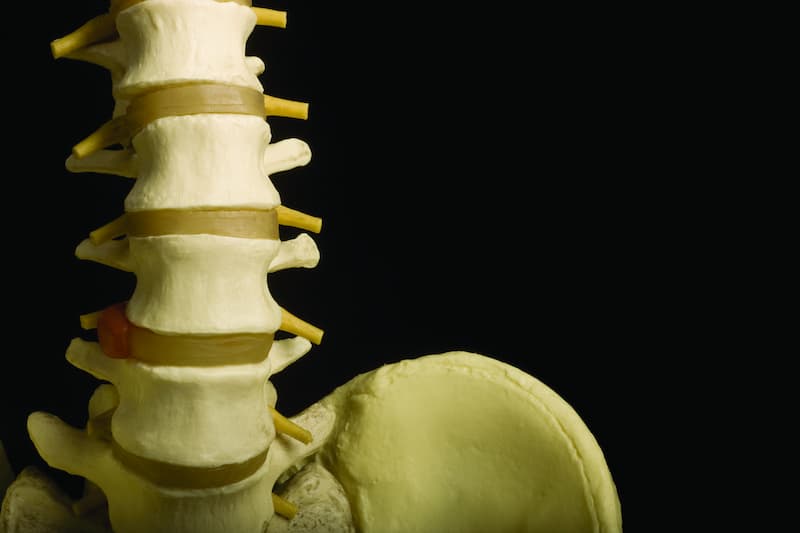FDA Accepts BLA for Denosumab Biosimilar for Prevention of Bone Loss in Cancer
A biologic license application for a biosimilar of denosumab is under review by the FDA for managing osteoporosis and treatment-induced bone loss in those with cancer.
The FDA has accepted a biologic license application for a proposed biosimilar of denosumab in the treatment of patients with osteoporosis and treatment-related bone loss in patients with cancer, according to a press release from Sandoz.1
Indications in the biologic license application for the denosumab biosimilar include preventing skeletal-related complications in bone cancer, giant cell tumor of the bone, and hypercalcemia malignancies refractory to bisphosphonate therapy.

The application included comprehensive analytical and clinical data from the phase 1/3 ROSALIA study (NCT03974100), in which the biosimilar denosumab demonstrated similar pharmacokinetics, efficacy, safety, and immunogenicity to the reference agent in patients with postmenopausal osteoporosis. Other indications in the application included use of biosimilar denosumab for prevention of skeletal-related complications in bone cancer, giant cell tumor of the bone, and hypercalcemia malignancies refractory to bisphosphonate therapy.
“We are proud to be among the first to submit a [biologic license application] for a denosumab biosimilar as, if approved, it could increase patient access to an affordable, high-quality, potentially disease-modifying treatment across the United States, while also delivering savings for healthcare systems,” Keren Haruvi, president, and head of the North American division of Sandoz, said in the press release.
The human monoclonal antibody denosumab was designed to bind to the RANKL protein, decreasing the production and activity of osteoclasts and thus reducing the risk of bone loss and other serious bone conditions.
Investigators of the multicenter, randomized, double-blind phase 1/3 ROSALIA study compared biosimilar denosumab with reference denosumab (Prolia) among postmenopausal patients with osteoporosis. Patients either received 60 mg/ml of biosimilar or reference denosumab via subcutaneous injection once every 6 months.
Primary end points of the trial included the percent change from baseline in lumbar spine bone mineral density and serum pharmacokinetics. Secondary end points included adverse effects (AEs) and serious AEs, anti-drug antibody serum concentration, and procollagen 1 N-terminal propeptide serum concentration.
Patients aged 55 years to 80 years who were diagnosed with osteoporosis were eligible for enrollment on the study. Additional inclusion criteria included having a body weight ranging from 50 kg to 90 kg, an absolute bone mineral density consistent with a T-score ranging from –4.0 to –2.5 at the lumbar spine as measured by a bone density scan, and at least 2 vertebrae in the L1 to L4 region and a minimum of 1 hip joint evaluable by bone density scan.
Patients with previous exposure to denosumab and a history of 1 severe or more than 2 moderate vertebral fractures or hip fractures were not able to enroll on the trial. Patients were also unsuitable for enrollment if they had a history of bone metastases, bone disease, or metabolic disease; ongoing use of any osteoporosis treatment; other bone active therapies; or a history of hypoparathyroidism, hyperparathyroidism, hypocalcemia, or hypercalcemia.
The FDA previously approved denosumab for the treatment of glucocorticoid-induced osteoporosis in May 2018.2 The approval was supported by findings from a phase 3 study in which denosumab yielded greater gains in bone mineral density than the active comparator of risedronate (Actonel) among patients previously treated with glucocorticoid therapy.
References
- Sandoz biologics license application for proposed biosimilar denosumab accepted by US FDA. News release. Sandoz. February 6, 2023. Accessed February 6, 2023. bit.ly/3HXQtWm
- FDA approves Prolia® (denosumab) For glucocorticoid-induced osteoporosis. News release. Amgen. May 21, 2018. Accessed February 6, 2023. bit.ly/40Bg4vQ
How Supportive Care Methods Can Improve Oncology Outcomes
Experts discussed supportive care and why it should be integrated into standard oncology care.